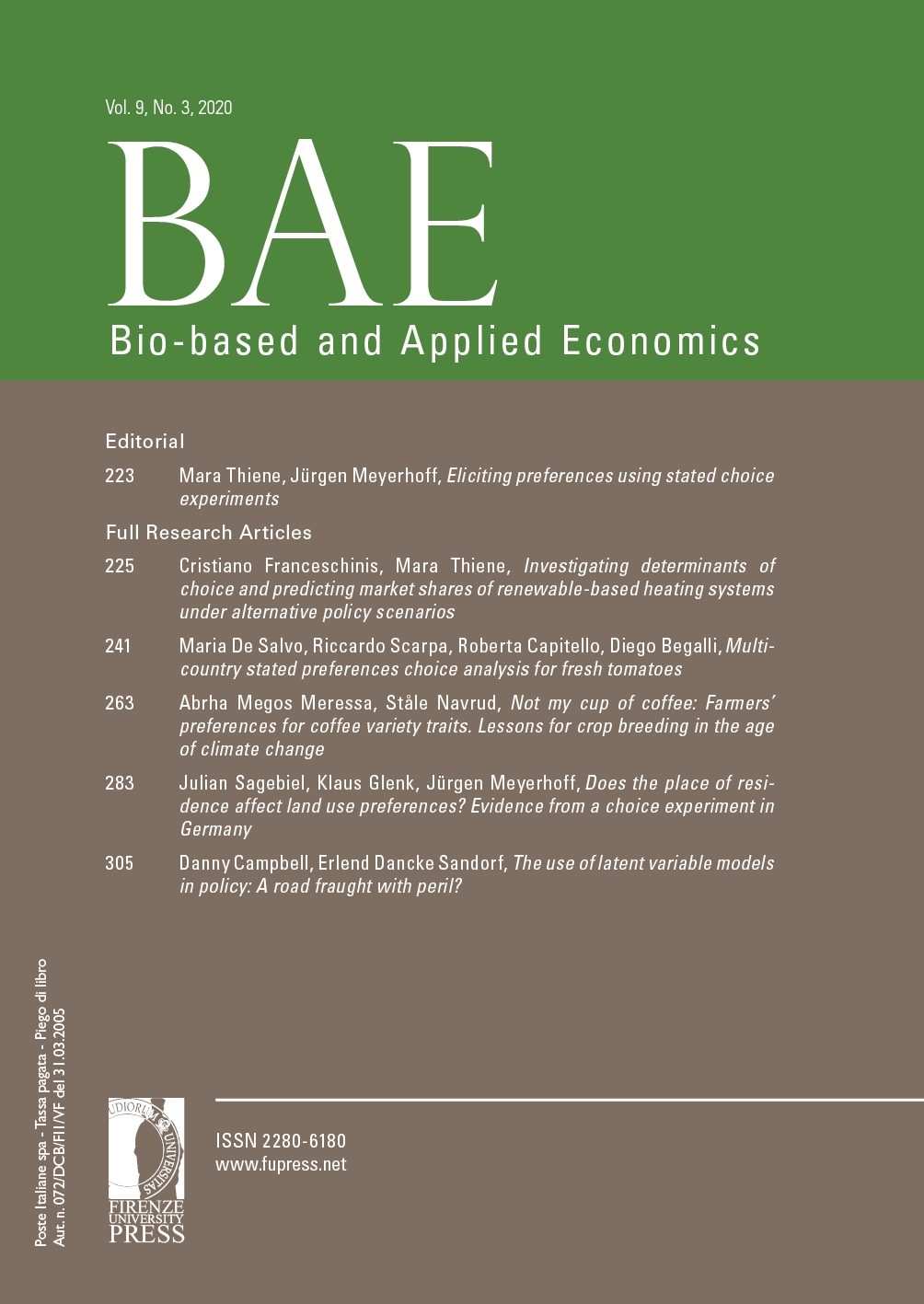Not my cup of coffee: Farmers’ preferences for coffee variety traits – Lessons for crop breeding in the age of climate change
Published 2020-12-14
Keywords
- Coffee,
- traits,
- crop breeding,
- climate change,
- discrete choice experiment
- willingness-to-pay ...More
How to Cite
Abstract
The advent of biotechnology and conservation of genetic resources hold promise to improve traits to meet the challenges to coffee growing from climate change. Developing new varieties by integrating traits in high demand by farmers could greatly increase farmers’ adoption of new varieties. This study aims to inform breeding priority setting by examining farmers’ preferences for coffee traits. A Discrete Choice Experiment was applied to smallholder farmers in northern Ethiopia to map their willingness-to-pay for improvements in four coffee traits: i) yield, ii) weather tolerance, iii) disease resistance, and iv) the maturity period. The traits are important to the farmers in their choice of coffee varieties. They prefer weather tolerant and disease resistant varieties; implying that they prefer yield stability over high yielding and early maturing varieties. Education level, access to irrigation and farmers’ experience in coffee farming explain the preference heterogeneity across farmers. These results suggest that breeding programs should give priority to yield stability in order to increase farmers’ adoption of new varieties, and secure in situ preservation of these traits. Thus, ex situ conservation programs are needed for early maturing and high yielding varieties, which farmers do not give priority to maintain in their own fields. This would improve climate resilience of coffee farming, and at the same time conserve the Arabica coffee genetic heritage of Ethiopia.






